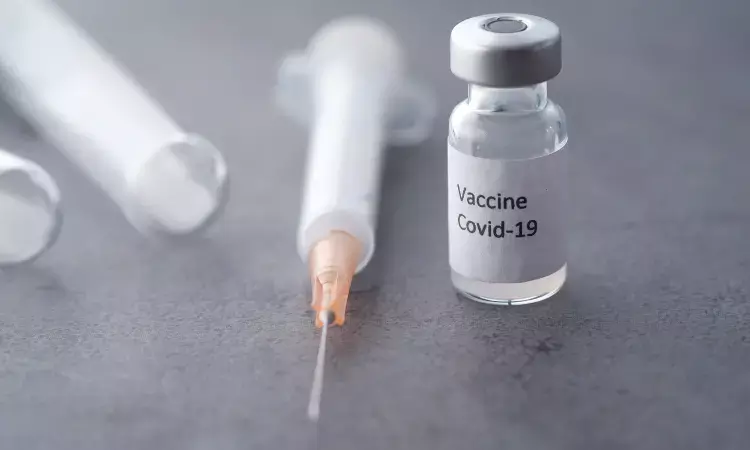- Home
- Medical news & Guidelines
- Anesthesiology
- Cardiology and CTVS
- Critical Care
- Dentistry
- Dermatology
- Diabetes and Endocrinology
- ENT
- Gastroenterology
- Medicine
- Nephrology
- Neurology
- Obstretics-Gynaecology
- Oncology
- Ophthalmology
- Orthopaedics
- Pediatrics-Neonatology
- Psychiatry
- Pulmonology
- Radiology
- Surgery
- Urology
- Laboratory Medicine
- Diet
- Nursing
- Paramedical
- Physiotherapy
- Health news
- Fact Check
- Bone Health Fact Check
- Brain Health Fact Check
- Cancer Related Fact Check
- Child Care Fact Check
- Dental and oral health fact check
- Diabetes and metabolic health fact check
- Diet and Nutrition Fact Check
- Eye and ENT Care Fact Check
- Fitness fact check
- Gut health fact check
- Heart health fact check
- Kidney health fact check
- Medical education fact check
- Men's health fact check
- Respiratory fact check
- Skin and hair care fact check
- Vaccine and Immunization fact check
- Women's health fact check
- AYUSH
- State News
- Andaman and Nicobar Islands
- Andhra Pradesh
- Arunachal Pradesh
- Assam
- Bihar
- Chandigarh
- Chattisgarh
- Dadra and Nagar Haveli
- Daman and Diu
- Delhi
- Goa
- Gujarat
- Haryana
- Himachal Pradesh
- Jammu & Kashmir
- Jharkhand
- Karnataka
- Kerala
- Ladakh
- Lakshadweep
- Madhya Pradesh
- Maharashtra
- Manipur
- Meghalaya
- Mizoram
- Nagaland
- Odisha
- Puducherry
- Punjab
- Rajasthan
- Sikkim
- Tamil Nadu
- Telangana
- Tripura
- Uttar Pradesh
- Uttrakhand
- West Bengal
- Medical Education
- Industry
Covid-19: Pfizer, CornoaVac vaccine linked to heart inflammation risk in adolescents

Hong Kong: Despite low absolute risk, there is an increased relative risk of carditis -- a type of heart inflammation -- associated with Covid vaccine developed by US drugmaker Pfizer and China's CoronaVac, researchers have found.
The findings, published in Annals of Internal Medicine, show a significant increased risk in adolescents after the second dose.
Patients who received Pfizer were three times more likely to experience carditis than unvaccinated patients.
On the other hand, patients who received CoronaVac had a similar chance as unvaccinated patients to experience carditis.
Researchers from the University of Hong Kong also observed that risk increase associated with Pfizer's Covid vaccine was predominant in males and was more likely to be seen after the second dose.
"The vaccination strategies may need to continuously consider the risks and benefits for different sub-populations, rather than taking a aone-size-fits-all' approach," they suggested.
Carditis is a rare inflammation of the heart often caused by bacterial, viral, and parasitic infections. Common subtypes of carditis include myocarditis, an inflammation of the heart muscle, and pericarditis, an inflammation of the outer lining of the heart.
Case reports of carditis after Pfizer vaccine vaccination have accrued globally.
The team studied 160 case patients (with carditis) and 1,533 control patients (without carditis) to examine the potential risk of carditis associated with vaccination with Pfizer vaccine or CoronaVac.
After conducting analyses, the team found 20 cases of carditis associated with Pfizer and seven associated with CoronaVac vaccination.
Cumulative incidence of carditis after vaccination was 0.57 per 100,000 doses of Pfizer and 0.31 per 100,000 doses of CoronaVac, demonstrating a very low absolute risk of carditis after vaccination.
However, none of the 20 case patients with carditis after Pfizer vaccination were admitted to the ICU or died within the observation period, compared with 14 of 133 unvaccinated patients admitted to the ICU and 12 deaths, the researchers said.
Read also: Pfizer-OPKO growth hormone deficiency treatment rejected by USFDA
Medical Dialogues Bureau consists of a team of passionate medical/scientific writers, led by doctors and healthcare researchers. Our team efforts to bring you updated and timely news about the important happenings of the medical and healthcare sector. Our editorial team can be reached at editorial@medicaldialogues.in.


